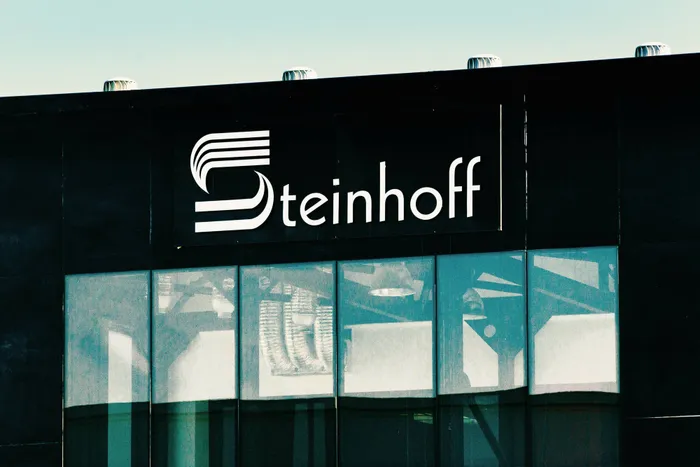Steinhoff share price rises in spite of debt plan likely to see it delisted

Steinhoff used to be one of the biggest companies in South Africa and had a market capitalisation of R372bn in 2016. Its current market valuation is around R2bn. File photo
Steinhoff International Holdings’s share price staged a mild comeback, rising 15.7% to 59c yesterday afternoon even as shareholders face further value erosion through its latest plan to repay some €10 billion (R184.3bn) debt that is due next year.
In the past few days the share price had sunk up to 75% to only 43 cents, after Steinhoff admitted on Friday it would likely not be able to repay its debt on the due date, and that a scheme to extend the debt could likely see it delisted.
The Stellenbosch-based holding company, with a primary listing in Frankfurt and secondary listing on the JSE, owns 40 furniture and home product retail brands in businesses across 30 countries.
The group has struggled after former executives perpetrated what has become known as South Africa’s biggest accounting fraud that saw it lose more than 90% of its capital in 2017. Much of the existing debt is from a legal settlement to save the group, after the collapse of its share price five years ago.
Comments on Twitter drew attention to the likely diminution of shareholder value, should the plan proceed. Syd Vianello @Siddel000 commented: “I don’t remember if I tweeted it but I have said, when asked the question if Steinhoff is worthless? Today’s announcement largely confirms this and if shareholders do get a few crumbs, they’ll be unlisted, untradeable and worth virtually nothing.”
Andries Mahlangu @mahlangu_am commented: “Steinhoff is such a sad tale…Unprecedented destruction of capital in the SA context.”
Billionaires.Africa @NineZeroClub remarked: “Christo Wiese-linked retailer Steinhoff loses $271.7 million (R4.7bn) on news of debt maturity extension.”
Meanwhile, legal action against Steinhoff’s former directors and CEO, Marcus Jooste, are grinding along very slowly.
Jooste faces court in Germany early next year after he and two former executives, who live in Germany and a fourth accused, who was not employed at the retailer, were charged with balance sheet fraud carried out between July, 2011 and January, 2015.
Here in South Africa, the Reserve Bank moved in October to attach Jooste’s assets for foreign exchange fraud, after the bank spent years investigating him.
The Financial Services Conduct Authority recently lowered a fine on Jooste for insider trading to R20m from the original R161m, after Jooste sent warning SMSes to other directors encouraging them to sell their shares in the company before the crash.
The JSE this year fined Steinhoff’s former chief financial officer Ben la Grange R2m for processing a bogus invoice, while its investigations into the executives continued.
Meanwhile, the National Prosecuting Authority (NPA) is still investigating and vowed to Parliament months ago that no stone would be left unturned as they prepared for criminal prosecution.
Several statements from the group in the past few days show a plan, if approved by shareholders, to extend the debt repayment period by three years to June, 2026 with creditors taking up an 80% interest in Steinhoff and 100% of voting power, leaving shareholders with only a 20% economic stake, and with the group likely to be delisted.
If shareholders do not approve the debt extension, creditors are likely to take up a 100% of the economic interest.
The group’s key subsidiaries, Pepkor, Pepco in Poland, and Mattress Firms are performing relatively well and Steinhoff’s results for the six months to March, 2022 showed revenues up 12% to nearly €5.2bn and operating profit up by 11.7% to €297m.
“To date it has not been possible to de-lever the group through investment and asset disposals and/or refinancing as quickly as originally anticipated,” the group said.
It said that restructuring the debt in normal markets would have already been difficult, but the situation had been made more difficult due to lower capital markets globally, risk aversion and rising interest rates, and the complexity of the debt structure.
Louis du Preez, Steinhoff CEO, said the extension “allows time for the group to realise the inherent value of its investments in a controlled manner”.
Steinhoff used to be one of the biggest companies in South Africa and had a market capitalisation of R372bn in 2016. Its current market valuation is around R2bn.
Adding to the gloomy outlook, the group said, “There is no certainty that the necessary commercial and legal agreements and arrangements will be concluded to successfully implement the proposed transaction.” And it warned shareholders to exercise caution in their share dealings.
BUSINESS REPORT
Related Topics: